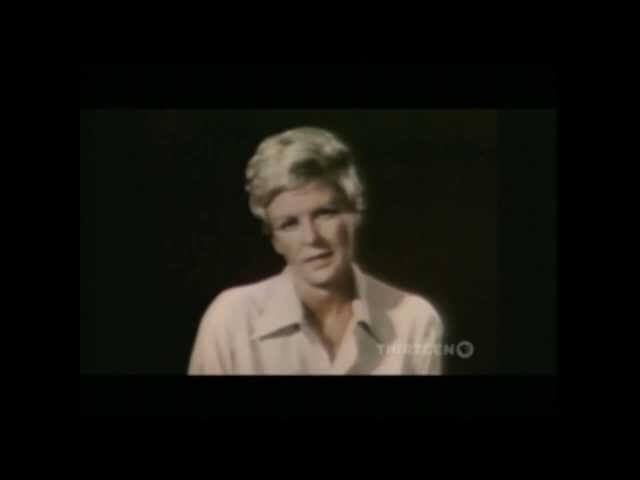R.I.P. Elaine Stritch, brassiest of the old broads

Actress, singer, Broadway star, and all-around delightfully irascible personality Elaine Stritch has died at the age of 89. Stritch had an incredibly long career that included widely hailed turns in plays by Noel Coward, Neil Simon, and Stephen Sondheim, and her own Tony-winning one-woman show, Elaine Stritch At Liberty. While she appeared in a few movies early on opposite the likes of Charlton Heston and Rock Hudson, she didn’t fully embrace film roles until later in her career, with supporting parts in movies like Small Time Crooks and Cocoon: The Return. But she had an impressive run on both American and British television, beginning with her role as the original Trixie in the pilot for The Honeymooners, and continuing with the British series Two’s Company and parts on American stalwarts such as The Cosby Show and Law And Order. Most recently, Stritch deployed her withering tongue on 30 Rock, playing Jack Donaghy’s perpetually unimpressed mother, Colleen. Stritch was also the subject of a documentary, Elaine Stritch: Shoot Me, that was released earlier this year.
Stritch’s persona—bawdy, blunt, and with a 3 a.m. voice that sounded like it was carelessly swinging around a vodka stinger—was established early on stage, where Stritch came up as an understudy for Ethel Merman who soon had Noel Coward reworking all of 1961’s Sail Away around her scene-stealing presence. Her Broadway roles included star-making turns in shows like Bus Stop, Goldilocks, and Sondheim’s Company, which yielded what would become one of her signature tunes, “The Ladies Who Lunch.” A scathing look at high society women punctuated by mock “I’ll drink to that” toasts, Stritch’s recording for the original cast album—as documented by D.A. Pennebaker in his behind-the-scenes film—was an exhausting, 14-hour struggle, a testament to just how hard Stritch worked to get it right. In the documentary’s climactic final scene, Stritch returns the next day to nail it in one triumphant take.
On TV, Stritch made her debut as the replacement for June Parrish on 1949’s The Growing Paynes, one of the first sitcoms in the medium. Besides that aforementioned near-brush with legend on The Honeymooners, her earliest roles included co-starring on 1960’s short-lived My Sister Eileen—where she played the down-to-earth foil to Shirley Bonne’s naïve would-be actress—and parts on various playhouse programs. In 1975, following her move to London to star in the West End production of Company, she landed a role in the British TV series Two’s Company, playing an itinerant American writer of trashy pulp novels who clashes with her proper English butler, played by Donald Sinden. The show ran for four seasons and netted Stritch a BAFTA nomination. Stritch was also a familiar presence in UK homes for Roald Dahl’s Tales Of The Unexpected, where her penchant for black humor was right at home among Dahl’s dark and twist-filled tales, and was a favorite guest on various talk shows.
As befitting an actress who embodied the “tough old broad” archetype, most of Stritch’s film work came in her later years—not least because Stritch said she preferred the connection with live audiences that was afforded by plays. But she did do a handful of movies in her younger days, including Michael Curtiz’s The Scarlet Hour and the Charlton Heston-starring Three Violent People, both in 1956; David O. Selznick’s 1957 adaptation of A Farewell To Arms; the 1958 comedy The Perfect Furlough, with Tony Curtis and Janet Leigh; and 1959’s psychological drama Kiss Her Goodbye. She also had a cult role as a tough-talking lesbian barkeep in the camp curio Who Killed Teddy Bear; played a strict nurse in the 1975 thriller remake The Spiral Staircase; and starred as a fever dream concocted by John Gielgud’s bitter, dying novelist in Alain Resnais’ Providence.
 Keep scrolling for more great stories.
Keep scrolling for more great stories.
